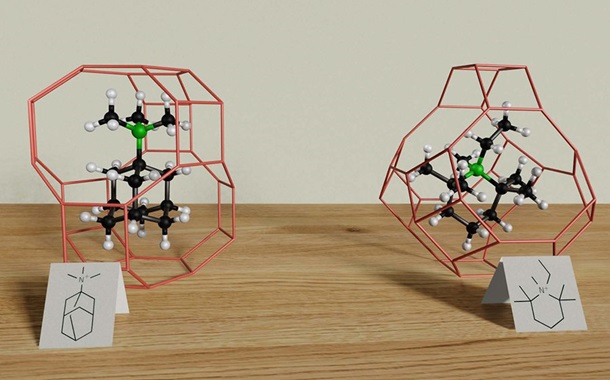Understanding Continuance Intention of Merchants as End User in Online Food Delivery After COVID-19
Downloads
Doi:10.28991/HIJ-2025-06-01-012
Full Text:PDF
Downloads
Yasirandi, R., & Thanasopon, B. (2023). A Survey of Food Delivery Innovation Evolution in Developing Countries: Insights from Indonesia. International Conference on Advancement in Data Science, E-Learning and Information Systems: Data, Intelligent Systems, and the Applications for Human Life, Bali, Indonesia. doi:10.1109/ICADEIS58666.2023.10271029.
Aprilianti, I., & Amanta, F. (2020). Promoting Food Safety in Indonesia's Online Food Delivery Services Policy Paper, No. 28, Center for Indonesian Policy Studies (CIPS), Jakarta, Indonesia.
Kim, W., & Hur, S. H. (2024). Investigation into Behavioral Change Patterns of Dine-In at Restaurant, Food Delivery, and Food Take-Out Resulting from the COVID-19 Pandemic: A Case Study in South Korea. Transportation Research Record. doi:10.1177/03611981241240759.
Oh, Y. K., & Yi, J. (2023). Determinants of Online Food Delivery (OFD) Sales during COVID-19. Global Business and Finance Review, 28(2), 93–106. doi:10.17549/gbfr.2023.28.2.93.
Tan, S. Y., Lim, S. Y., & Yeo, S. F. (2024). Online food delivery services: cross-sectional study of consumers' attitude in Malaysia during and after the COVID-19 pandemic. F1000Research, 10, 972. doi:10.12688/f1000research.73014.2.
Sharma, S., Devi, K., Naidu, S., Greig, T., Singh, G., & Slack, N. (2023). From brick and mortar to click and order: consumers' online food delivery service perceptions post-pandemic. British Food Journal, 125(11), 4143–4162. doi:10.1108/BFJ-04-2023-0351.
Singh, S. P., Dash, B. P., Sachan, A., & Adhikari, A. (2023). Price or quality? Consumers' preferences and willingness to pay (WTP) for online food delivery services in the COVID-19 era. TQM Journal. doi:10.1108/TQM-04-2023-0112.
Lutfi, A. M., & Juhdi, N. (2023). Intention to Use Online Food Delivery Services in Indonesia. I-iECONS e-proceedings 393–402. doi:10.33102/iiecons.v10i1.105.
Zhao, Y., Papier, F., & Teo, C. P. (2024). Market Thickness in Online Food Delivery Platforms: The Impact of Food Processing Times. Manufacturing and Service Operations Management, 26(3), 853–872. doi:10.1287/msom.2021.0354.
Ahdiat, A. (2023). Number of QRIS Merchants Increases, but Transactions Are Still Low. Katadata Media Network, Jakarta, Indonesia. Available online: https://databoks.katadata.co.id/datapublish/2023/07/05/jumlah-merchant-qris-meningkat-tapi-transaksinya-masih-rendah (accessed on February 2025).
Amira, D. (2023). GoFood records significant growth in transaction value more than twice OFD industry average, focuses on loyal users. Goto Company, Jakarta, Indonesia. Available online: https://www.gotocompany.com/en/news/press/gofood-records-significant-growth-in-transaction-value-more-than-twice-ofd-industry-average-focuses-on-loyal-users (accessed on February 2025).
Bugrov, D., Dhara, D., & Kamarudin, K. (2024). Southeast Asia quarterly economic review: Sustaining the momentum. McKinsey & Company, Illinois, United States. Available online: https://www.mckinsey.com/featured-insights/future-of-asia/southeast-asia-quarterly-economic-review (accessed on February 2025).
Septiani, L. (2023). Comparison of GrabFood Grab and GoFood Gojek Transactions. Katadata, Jakarta, Indonesia. Available online: https://katadata.co.id/digital/startup/64213dd092e1f/perbandingan-transaksi-grabfood-grab-dan-gofood-gojek?page=2 (accessed on February 2025).
Bhattacherjee, A. (2001). Understanding Information Systems Continuance: An Expectation-Confirmation Model. The Mississippi Quarterly, 25(3), 351–370.
Lin, C. S., Wu, S., & Tsai, R. J. (2005). Integrating perceived playfulness into expectation-confirmation model for web portal context. Information and Management, 42(5), 683–693. doi:10.1016/j.im.2004.04.003.
Mou, J., Shin, D. H., & Cohen, J. (2017). Understanding trust and perceived usefulness in the consumer acceptance of an e-service: a longitudinal investigation. Behaviour and Information Technology, 36(2), 125–139. doi:10.1080/0144929X.2016.1203024.
Daneji, A. A., Ayub, A. F. M., & Khambari, M. N. M. (2019). The effects of perceived usefulness, confirmation and satisfaction on continuance intention in using massive open online course (MOOC). Knowledge Management and E-Learning, 11(2), 201–214. doi:10.34105/j.kmel.2019.11.010.
Chen, Y. Y., Huang, W. N., Huang, H. L., & Sung, S. F. (2009). Confirmation of expectations and satisfaction with an on-line service: the role of internet self-efficacy. Proceedings - 2009 International Conference on New Trends in Information and Service Science, NISS 2009, 880–885. doi:10.1109/NISS.2009.60.
Sliwa, C., & Collett, S. (2000). Consumers Gripe about Web Shopping. Computerworld, 34(2), 6.
Calisir, F., & Calisir, F. (2004). The relation of interface usability characteristics, perceived usefulness, and perceived ease of use to end-user satisfaction with enterprise resource planning (ERP) systems. Computers in Human Behavior, 20(4), 505–515. doi:10.1016/j.chb.2003.10.004.
Davis, F. D., Bagozzi, R. P., & Warshaw, P. R. (1989). User Acceptance of Computer Technology: A Comparison of Two Theoretical Models. Management Science, 35(8), 982–1003. doi:10.1287/mnsc.35.8.982.
Lai, H. M., Chen, C. P., & Chang, Y. F. (2016). Expectation-confirmation model of information system continuance: a meta-analysis. International Journal of Educational and Pedagogical Sciences, 10(7), 2325-2330.
Minh Ngoc, N., Le Ha Phuong, H., Duc Manh, N., Anh Duong, K., Thanh Tung, T., Van Hao, H., & Minh Hieu, N. (2023). Exploring continuance intention to use electric motorcycles among students in Hanoi using expectation confirmation theory. Transport and Communications Science Journal, 74(1), 58–71. doi:10.47869/tcsj.74.1.6.
Qatawneh, N., Al-Okaily, A., Al-Okaily, M., & Ur Rehman, S. (2024). Exploring the antecedent factors of continuous intention to use mobile money: insights from emerging markets. Digital Policy, Regulation and Governance, 27(2), 175-200. doi:10.1108/DPRG-04-2024-0080.
Ramos, K. (2022). Factors influencing customers' continuance usage intention of food delivery apps during COVID-19 quarantine in Mexico. British Food Journal, 124(3), 833–852. doi:10.1108/BFJ-01-2021-0020.
Yeh, R.K.J., & Teng, J.T.C. (2012). Extended conceptualization of perceived usefulness: Empirical test in the context of information system use continuance. Behaviour and Information Technology, 31(5), 525–540. doi:10.1080/0144929X.2010.517272.
Noviyasari, C., Ibrahim, H., & Kasiran, M. (2021). An Expectation-Confirmation Model of Continuance Intention to Enhance E-Wallet. Journal of Theoretical and Applied Information Technology, 99(24), 6028–6041.
Hsu, C. L., & Lin, J. C. C. (2015). What drives purchase intention for paid mobile appsβ-An expectation confirmation model with perceived value. Electronic Commerce Research and Applications, 14(1), 46–57. doi:10.1016/j.elerap.2014.11.003.
Dubey, P., & Sahu, K. K. (2021). Students' perceived benefits, adoption intention and satisfaction to technology-enhanced learning: examining the relationships. Journal of Research in Innovative Teaching and Learning, 14(3), 310–328. doi:10.1108/JRIT-01-2021-0008.
Prasetya, F. H., Harnadi, B., Widiantoro, A. D., & Pamudji, A. K. (2022). Expectation-Confirmation Model (ECM) to See Satisfaction and Continued Intention of e-Learning ('Cyber'). 6th International Conference on Information Technology, InCIT 2022, 303–308. doi:10.1109/InCIT56086.2022.10067619.
Halilovic, S., & Cicic, M. (2013). Antecedents of information systems user behaviour-extended expectation-confirmation model. Behaviour and Information Technology, 32(4), 359–370. doi:10.1080/0144929X.2011.554575.
Jumaan, I. A., Hashim, N. H., & Al-Ghazali, B. M. (2020). The role of cognitive absorption in predicting mobile internet users' continuance intention: An extension of the expectation-confirmation model. Technology in Society, 63(101355), 101355. doi:10.1016/j.techsoc.2020.101355.
Li, X., Lai, F., Yuan, Y., Yao, D., & Yang, B. (2020). Understanding Adoption and Continuance of Online Direct Sales Channel. Journal of Computer Information Systems, 60(5), 409–417. doi:10.1080/08874417.2018.1504636.
Santoso, D. R., Handayani, P. W., & Azzahro, F. (2022). The Resistance to Adopting Online Marketplace: The Influence of Perceived Risk and Behavioral Control of Small and Medium Enterprises in Indonesia. CommIT Journal, 16(1), 53–68. doi:10.21512/commit.v16i1.7858.
Wang, Y. S., Li, H. T., Li, C. R., & Zhang, D. Z. (2016). Factors affecting hotels' adoption of mobile reservation systems: A technology-organization-environment framework. Tourism Management, 53, 163–172. doi:10.1016/j.tourman.2015.09.021.
Yang, J., & Jong, D. (2021). Understanding continuance intention determinants to adopt online health care community: An empirical study of food safety. International Journal of Environmental Research and Public Health, 18(12), 6514. doi:10.3390/ijerph18126514.
Venkatesh, V., & Bala, H. (2008). Technology acceptance model 3 and a research agenda on interventions. Decision Sciences, 39(2), 273–315. doi:10.1111/j.1540-5915.2008.00192.x.
Pańkowska, M., Pyszny, K., & Strzelecki, A. (2020). Users' adoption of sustainable cloud computing solutions. Sustainability (Switzerland), 12(23), 1–21. doi:10.3390/su12239930.
Chen, S. C., Liu, S. C., Li, S. H., & Yen, D. C. (2013). Understanding the mediating effects of relationship quality on technology acceptance: An empirical study of E-appointment system. Journal of Medical Systems, 37(6), 9981. doi:10.1007/s10916-013-9981-0.
Chen, X., & Li, S. (2017). Understanding continuance intention of mobile payment services: An empirical study. Journal of Computer Information Systems, 57(4), 287–298. doi:10.1080/08874417.2016.1180649.
Alam, S. S., Ali, M. H., Omar, N. A., & Hussain, W. M. H. W. (2020). Customer satisfaction in online shopping in growing markets: An empirical study. International Journal of Asian Business and Information Management 11(1), 78–91. doi:10.4018/IJABIM.2020010105.
Van Slyke, C., Ilie, V., Lou, H., & Stafford, T. (2007). Perceived critical mass and the adoption of a communication technology. European Journal of Information Systems, 16(3), 270–283. doi:10.1057/palgrave.ejis.3000680.
Barnes, S. J., & Böhringer, M. (2011). Modeling use continuance behavior in microblogging services: The case of Twitter. Journal of Computer Information Systems, 51(4), 1–10.
Chang, C. H., & Chen, Y. S. (2014). Managing green brand equity: The perspective of perceived risk theory. Quality and Quantity, 48(3), 1753–1768. doi:10.1007/s11135-013-9872-y.
Featherman, M. S., & Pavlou, P. A. (2003). Predicting e-services adoption: A perceived risk facets perspective. International Journal of Human Computer Studies, 59(4), 451–474. doi:10.1016/S1071-5819(03)00111-3.
Jangir, K., Sharma, V., Taneja, S., & Rupeika-Apoga, R. (2023). The Moderating Effect of Perceived Risk on Users' Continuance Intention for FinTech Services. Journal of Risk and Financial Management, 16(1), 21. doi:10.3390/jrfm16010021.
Saunders, Adrian, M., & Lewis, P. (2019). Research Methods for Business Students Eights Edition Research Methods for Business Students. In Research Methods for Business Students (8th edition. Pearson education, p. 833).
Crotty, M., Shakespeare, W., & Henry, V. (2020). The Foundations of Social Research: Meaning and perspective in the research process. Sage Publications, New York, United States. doi:10.4324/9781003115700.
Orlikowski, W. J., & Baroudi, J. J. (1991). Studying information technology in organizations: Research approaches and assumptions. Information Systems Research, 2(1), 1–28. doi:10.1287/isre.2.1.1.
Clark, H. H. (1969). Linguistic processes in deductive reasoning. Psychological Review, 76(4), 387–404. doi:10.1037/h0027578.
Mendis, A. (2021). Study of Volatility Stochastic Processes in the Context of Solvency Forecasting for Sri Lankan Life Insurers. Open Journal of Statistics, 11(01), 77–98. doi:10.4236/ojs.2021.111004.
Bougie, R., & Sekaran, U. (2019). Research methods for business: A skill building approach. John Wiley & Sons, New Jersey, United States.
Recker, J. (2013). Scientific Research in Information Systems. Springer International Publishing, Cham, Switzerland. doi:10.1007/978-3-642-30048-6.
Lee, C. Y. (2009). Competition favors the prepared firm: Firms' R&D responses to competitive market pressure. Research Policy, 38(5), 861–870. doi:10.1016/j.respol.2009.01.005.
Littler, D., & Melanthiou, D. (2006). Consumer perceptions of risk and uncertainty and the implications for behaviour towards innovative retail services: The case of Internet Banking. Journal of Retailing and Consumer Services, 13(6), 431–443. doi:10.1016/j.jretconser.2006.02.006.
Al-khatib, A. wael, AL-Shboul, M. A., & Khattab, M. (2024). How can generative artificial intelligence improve digital supply chain performance in manufacturing firms? Analyzing the mediating role of innovation ambidexterity using hybrid analysis through CB-SEM and PLS-SEM. Technology in Society, 78, 102676. doi:10.1016/j.techsoc.2024.102676.
Hair, J. F., Risher, J. J., Sarstedt, M., & Ringle, C. M. (2019). When to use and how to report the results of PLS-SEM. European Business Review, 31(1), 2–24. doi:10.1108/EBR-11-2018-0203.
dos Santos, P. M., & Cirillo, M. í‚. (2023). Construction of the average variance extracted index for construct validation in structural equation models with adaptive regressions. Communications in Statistics: Simulation and Computation, 52(4), 1639–1650. doi:10.1080/03610918.2021.1888122.
Savalei, V. (2021). Improving Fit Indices in Structural Equation Modeling with Categorical Data. Multivariate Behavioral Research, 56(3), 390–407. doi:10.1080/00273171.2020.1717922.
Whittaker, T. A. (2012). Using the modification index and standardized expected parameter change for model modification. Journal of Experimental Education, 80(1), 26–44. doi:10.1080/00220973.2010.531299.
Byrne, B. M. (2010). Structural equation modeling with AMOS: basic concepts, applications, and programming (Multivariate Applications Series). Taylor & Francis Group, New York, United States. doi:10.4324/9781410600219.
Dash, G., & Paul, J. (2021). CB-SEM vs PLS-SEM methods for research in social sciences and technology forecasting. Technological Forecasting and Social Change, 173, 121092. doi:10.1016/j.techfore.2021.121092.
Hemphill, J. F. (2003). Interpreting the Magnitudes of Correlation Coefficients. American Psychologist, 58(1), 78–79. doi:10.1037/0003-066X.58.1.78.
Afthanorhan, A., Aimran, A., & Ahmad, S. (2015). Permutation Test, Non-parametric, and Confidence Set Approaches to Multi Group Analysis for Comparing 2 Groups Using Partial Least Square Structural Equation Modeling (PLS-SEM). Advances in Research, 4(5), 315–328. doi:10.9734/air/2015/15218.
Tandon, U., Kiran, R., & Sah, A. N. (2018). The influence of website functionality, drivers and perceived risk on customer satisfaction in online shopping: an emerging economy case. Information Systems and E-Business Management, 16(1), 57–91. doi:10.1007/s10257-017-0341-3.
Byrd, T. F., Kim, J. S., Yeh, C., Lee, J., & O'Leary, K. J. (2021). Technology acceptance and critical mass: Development of a consolidated model to explain the actual use of mobile health care communication tools. Journal of Biomedical Informatics, 117(103749), 103749. doi:10.1016/j.jbi.2021.103749.
Yu, X., Yang, Y., & Li, S. (2024). Users' continuance intention towards an AI painting application: An extended expectation confirmation model. PLoS ONE, 19(5 May), 301821. doi:10.1371/journal.pone.0301821.
Lou, H., Luo, W., & Strong, D. (2000). Perceived critical mass effect on groupware acceptance. European Journal of Information Systems, 9(2), 91–103. doi:10.1057/palgrave.ejis.3000358.
Al-Hattami, H. M. (2021). Determinants of intention to continue usage of online shopping under a pandemic: COVID-19. Cogent Business and Management, 8(1), 1936368. doi:10.1080/23311975.2021.1936368.
Awad, R., Aljaafreh, A., & Salameh, A. (2022). Factors Affecting Students' Continued Usage Intention of E-Learning During COVID-19 Pandemic: Extending Delone & Mclean IS Success Model. International Journal of Emerging Technologies in Learning, 17(10), 120–144. doi:10.3991/ijet.v17i10.30545.
- This work (including HTML and PDF Files) is licensed under a Creative Commons Attribution 4.0 International License.





















